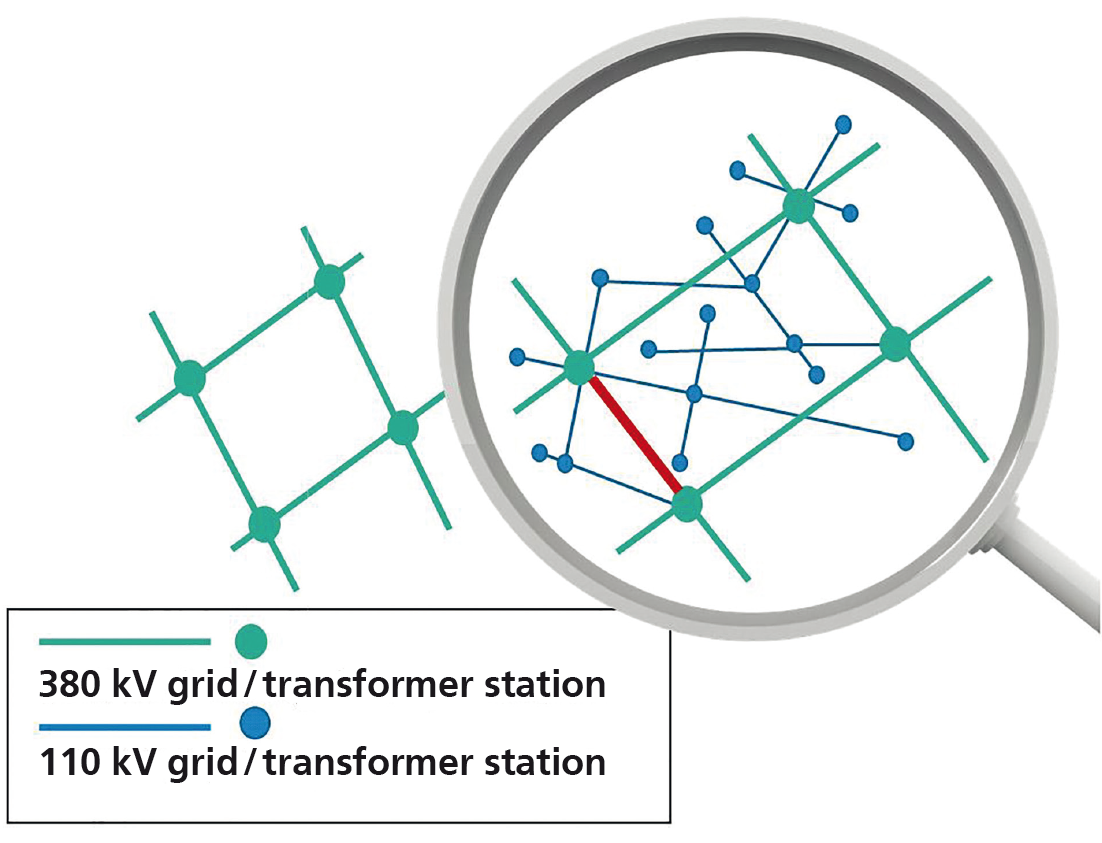Due to the growing number of PV and wind power plants, stable grid operation in Germany is currently achieved by so-called »congestion management«. Its goal is to minimize the throttling of electricity fed in from renewable sources and to make use of flexibility in the electricity grid. The costs for the national congestion management currently exceed 1.4 thousand million euros and are paid by the final customers via their grid service charges. The transmission grid operators are responsible for grid stability and the integration of the distribution grids into the congestion management via the so-called »coordination cascade«. Therefore, determining the flexibility potential of the subordinate grids plays a central role, but the conventional feedback from distribution grid operators no longer meets the increasingly complex requirements.
Holistic Grid Congestion Management in the Electricity Grid
Power Electronics, Grids and Smart Systems

As part of the SINTEG showcase project, »C/sells«A, Fraunhofer ISE has developed a complex simulation model of the German high-voltage grid with more than 8500 nodes. It resolves the spatial distribution of loads and generation at the node level. The data and models are based on the »osmTGmod« open sources and the »OpenEnergy« platform. In addition, we have carried out simulation studies on grid operation with »congestion scenarios« with and without taking account of the subordinate 110 kV grid. This demonstrated that the influence of the high-voltage grid is relevant and thus that significantly smaller corrections to power plant operation could be enough in future.
A Supported by the German Federal Ministry for Economic Affairs and Energy (BMWi)